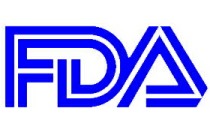The FDA announced late last week that it is requesting public comments to assist the agency in evaluating measures that may minimize the risk of harmful bacteria in raw milk cheeses. Raw milk cheese is made from unpasteurized milk.
 The government, in conjunction with Health Canada, is also releasing a technical Quantitative Risk Assessment (QRA) report to evaluate the effects of factors in cheesemaking on the overall risk of listeriosis to the consumer. It includes estimates of the number of servings of raw milk cheese that result in one cases of invasive listeriosis, as well as the prevalence of contaminated servings, and the increased risk of invasive listeriosis per serving of raw milk cheese.
The government, in conjunction with Health Canada, is also releasing a technical Quantitative Risk Assessment (QRA) report to evaluate the effects of factors in cheesemaking on the overall risk of listeriosis to the consumer. It includes estimates of the number of servings of raw milk cheese that result in one cases of invasive listeriosis, as well as the prevalence of contaminated servings, and the increased risk of invasive listeriosis per serving of raw milk cheese.
The FDA released a statement about this call: “The FDA recognizes that there is broad diversity in cheese manufacturing operations and approaches and that many factors go into ensuring the safety of the food. In issuing this call or data and information, we are interested in learning more about the standards and practices in use by a wide variety of producers, including the growing artisans cheese manufacturing community.”
From 1998 to 2011, there have been 38 outbreaks linked to raw milk cheese. Most of those outbreaks were linked to Mexican-style quest fresco cheeses, with Salmonella being the most common pathogen. Listeria was the second most common pathogen.
Cheese imported from Mexico was associated with 38% of the outbreaks caused by raw milk products. Those outbreaks caused more than 600 illnesses, and two deaths linked to the Mexican-style queso fresco cheeses.
Studies have concluded that aged cheese made from raw milk are relatively safe. Those cheeses are aged for at least 60 days, which reduces the pH and water content in the product. That limits the growth of bacteria, yeast, and molds.
The risk of getting sick from raw milk cheese is greatest for these populations: children, pregnant women, the elderly, and those with weakened immune systems. The risk is higher from soft-ripened cheese. For more information, the FDA has released a video on the dangers of unpasteurized milk.




